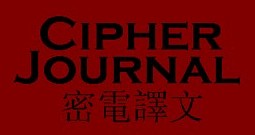
On Yu Jian’s “Afternoon A Colleague Walking in Shadow”
于坚
下午 一位在阴影中走过的同事
这天下午我在旧房间里读一封俄勒冈的来信
当我站在惟一的窗子前倒水时看见了他
这个黑发男子 我的同事 一份期刊的编辑
正从两幢白水尼和马牙石砌成的墙之间经过
他一生中的一个时辰 在下午三点和四点之间
阴影从晴朗的天空中投下
把白色建筑剪成奇怪的两半
在它的一半里是报纸和文件柜 而另一半是寓所
这个男子当时就在那狭长灰暗的口子里
他在那儿移动了大约三步或者四步
他有些迟疑不决 皮鞋跟还拨响了什么
我注意到这个秃顶者毫无理由的踌躇
阳光 安静 充满和平的时间
这个穿着红色衬衫的矮个子男人
匆匆走过两幢建筑物之间的阴影
手中的信,差点儿掉到地上
这次事件把他的一生向我移近了大约五秒
他不知道 我也从未提及
1991 年
Afternoon A Colleague Walking in Shadow
Yu Jian
this afternoon, in an old room, I read a letter from Oregon
as I stood at the only window helping myself to some water, I saw him
this man with dark hair a colleague of mine editor of a magazine
passing between two walls made up of stones like horse-teeth cemented together with white concrete
a slice of time from his life between three and four o’clock in the afternoon
shadows were cast from this fine, sunny sky shearing the white structures into two unusual halves
in one half there were newspapers and filing cabinets in the other, dwellings
the man himself was in that long gloomy gap
in between there he took three, maybe four steps
he was a trifle uncertain the heel of one shoe banged against something
I noticed the balding man’s senseless hesitation
sunlight stillness a time filled with tranquillity
this man of short stature wearing a red shirt
rushed on through the shadow between the two structures
I almost dropped the letter onto the floor
this event made his entire life shift closer to mine for roughly five seconds
he never knew it and I never mentioned it to him
1991
I first came across Yu Jian’s work in the early 1990s, and was struck mainly by its down-to-earth quality. Maybe that’s the impression other readers of his work also have. And yet, Yu Jian has his frankly mysterious side. He has written on the shamanic dances of the dongba, a kind of sorcerer figure in Naxi culture. When he visited Australia in 2001, he was so enchanted by Uluru (an enormous red rock hidden away in the “red centre” of the country) that we made the 9 kilometre walk around the rock twice in two days!
In “Afternoon”, we are dealing with a highly unusual experience: the act of reading the letter inspires a brief and enigmatic vision of the poet’s acquaintance. The mystery is, however, approached in characteristic Yu Jian fashion: long, prose-like lines that aim to “capture” the experience as objectively as possible. We are given a place, a time of day, the basic facets of what the poet saw, but no emotional response, and no speculation on the significance of what happened. In translating the poem, I had to get that same objectivity, even at the risk of making the central core of the poem seem something negligible, something merely “imaginative”.
I recently had my second experience of “sleep paralysis”, a condition that entails waking up in a state of heightened consciousness but being completely unable to move. When I tried to write about it, it was the intensity and weirdness of the experience that I wanted to convey. I’m afraid I lack Yu Jian’s sobriety. I once wrote to him, asking for more details about what he describes in “Afternoon A Colleague Walking in Shadow”, but he refused to oblige. It would seem that he simply wishes to place on record a statement of what happened. As a translator, all I can do is to extend accessibility of this statement to English-language- readers. As to the question of what the experience actually means, I’m afraid I can provide no additional information; but we are allowed to conclude, I think, that there are instants in life that respect none of the well-worn descriptions we sketch of it, and allow a glimpse of a bigger and a more awesome picture.